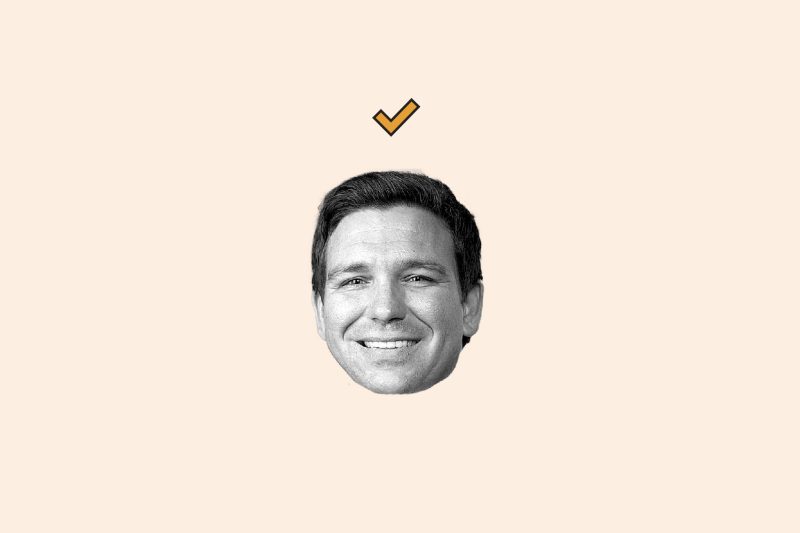
Our Republican debate poll finds Ron DeSantis won but gained little support
In the fourth and final Republican primary debate poll of 2023, Florida Gov. Ron DeSantis edged out former U.N. ambassador Nikki Haley as the candidate Republican debate watchers thought performed best.
Former president Donald Trump once again declined to participate in the debate, but as has been the case throughout the primary, each of these candidates is still running far behind him in the race for the GOP presidential nomination. With less than six weeks before the Iowa caucuses kick off the nominating contest, there is little time for these candidates to close the gap.
The 538-Washington Post-Ipsos poll of potential Republican primary and caucus voters who watched Wednesday’s debate, hosted by NewsNation, finds 30 percent thought DeSantis “performed best,” followed by 23 percent who chose Haley. This is a turn in fortunes for Haley, as after the last debate, our poll found that 34 percent of debate watchers thought she performed best, compared with 23 percent who said DeSantis performed best.
Debate watchers are more unified, however, in who they think performed the worst in Wednesday’s debate, with 37 percent choosing tech entrepreneur Vivek Ramaswamy and 31 percent picking former New Jersey governor Chris Christie.
Most candidates saw little movement after the debate in the share of GOP debate viewers who consider supporting them. DeSantis, Haley, Ramaswamy and Trump saw the share considering them move one percentage point or less, which is within the poll’s margin of error. Christie is the only candidate who saw a significant jump in support from 21 percent considering him before the debate to 29 percent after, though he still lags far behind Trump, DeSantis and Haley.
Looking at GOP voters overall — not just those who tuned in to the debate — the picture is largely the same, with few changing their mind on who they’d support. In national polls measuring voters’ first choice, Trump leads the field by about 40 percentage points.
How well liked the candidates are didn’t change much either. Both before and after the debate, DeSantis, Haley and Trump were the most liked. Christie did see a significant jump in his favorability ratings, up 11 points among debate watchers, but with 42 percent giving him favorable marks, he still remains pretty unpopular. Only Ramaswamy and Asa Hutchinson, the latter of whom did not qualify for last night’s debate, are less popular.
Republicans were generally less impressed with candidates’ performances Wednesday than they were after previous debates. Christie, again, was the exception, with 34 percent of watchers saying he performed well, a jump of eight points from the third debate. Debate watchers still liked DeSantis and Haley’s performances the most, with 46 and 45 percent, respectively, saying they performed “excellent” or “very good.” But those numbers were down from the third debate. Ramaswamy’s ratings, meanwhile, have steadily fallen from 55 percent who gave him positive marks in the first debate to 30 percent in the fourth.
The 538-Washington Post-Ipsos poll was conducted before and after the Republican debate on Dec. 6. The pre-debate survey was conducted from Nov. 28 to Dec. 5 among a random sample of 5,175 U.S. adults who said they are likely to vote in the Republican primary or caucuses in their state in 2024. The error margin was plus or minus 1.5 points. The post-debate wave was conducted on Dec. 6 and 7 among 763 likely Republican primary or caucus voters who said they watched some or all of the debate. The error margin among debate watchers is plus or minus four percentage points.
The sample was drawn through the Ipsos KnowledgePanel, an ongoing survey panel recruited through random address-based sampling of U.S. households. The study was conducted in both English and Spanish, and the overall adult sample was weighted to match population benchmarks gender by age, race, ethnicity, education, census region, metropolitan status, household income and party identification.
